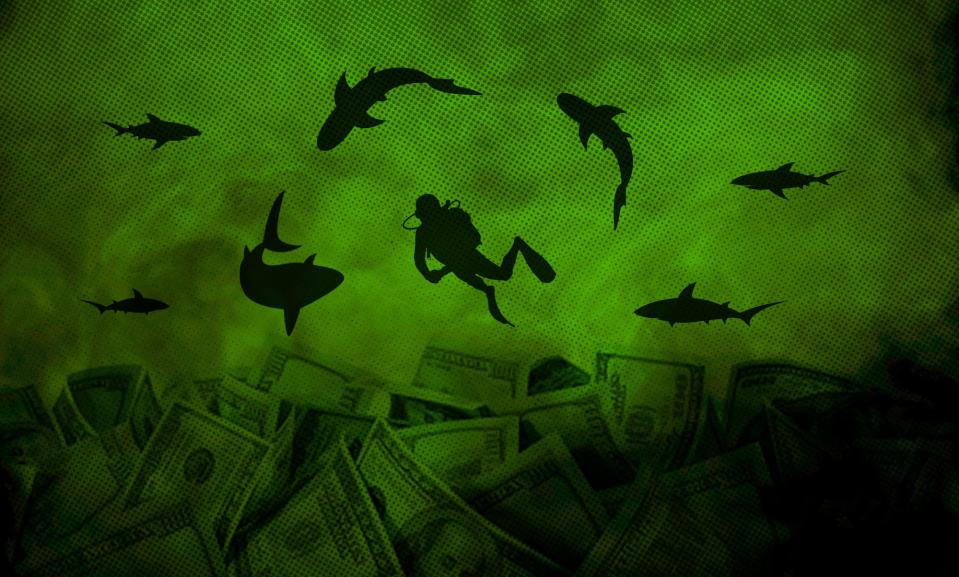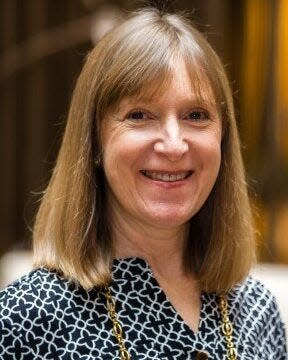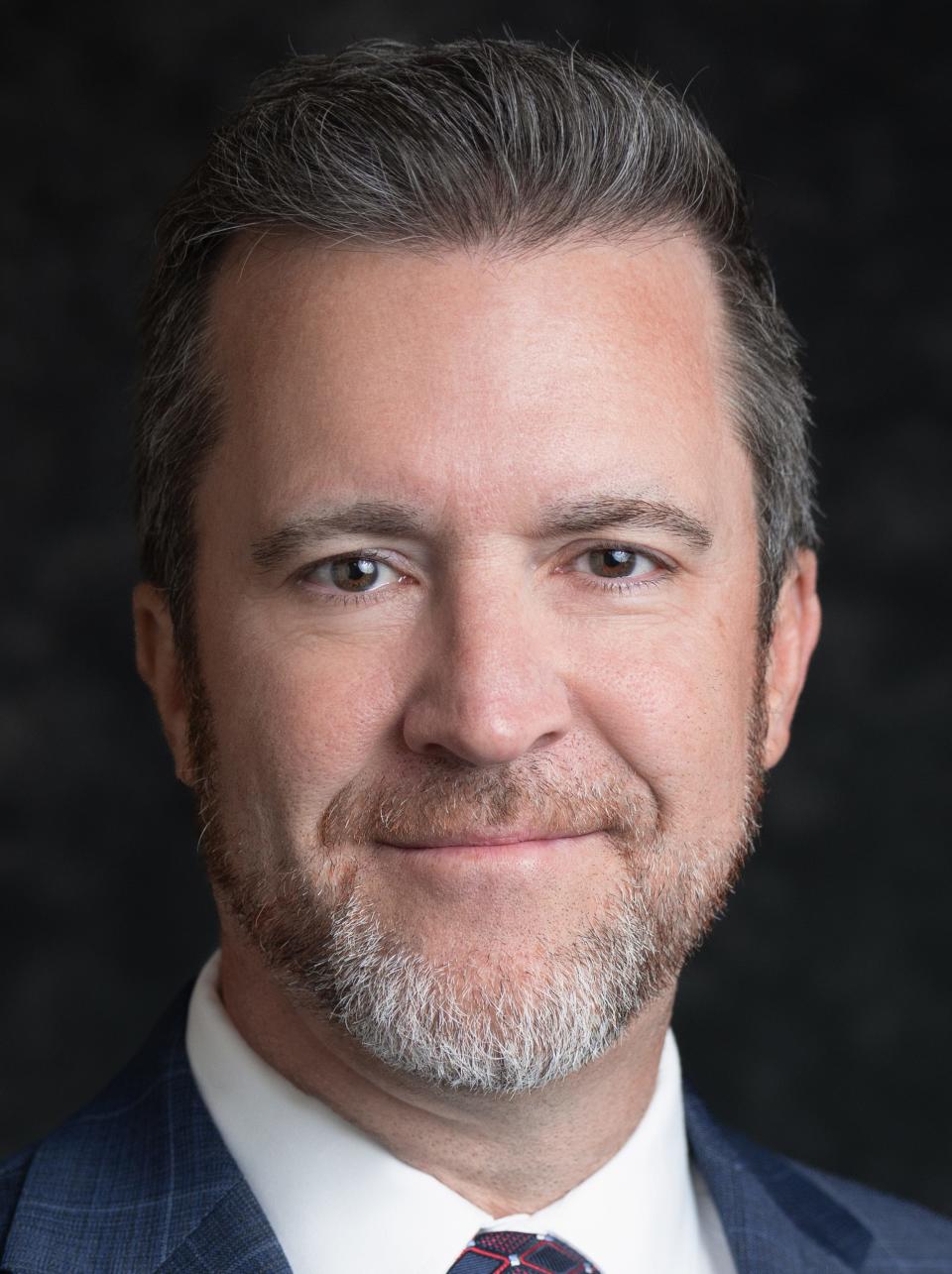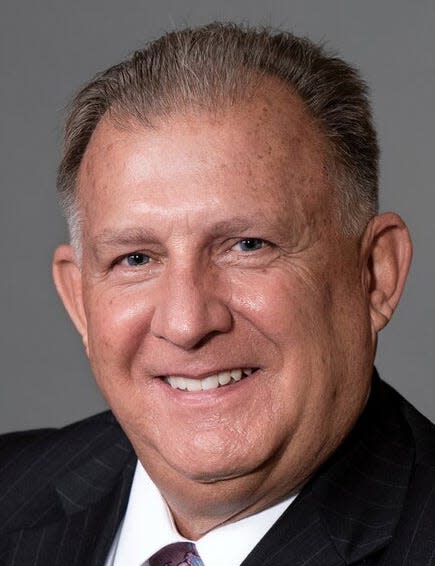How 4 small Utah banks have taken 'predatory lending' national. It's all thanks to state law, critics say

Four small Utah banks have landed on a watch list by offering an increasingly common type of "predatory" loan to financially vulnerable Americans, according to a consumer watchdog group.
The banks are Capital Community Bank of Provo; FinWise Bank of Murray; First Electronic Bank of Salt Lake City; and Transportation Alliance Bank, or TAB Bank, of Ogden, according to the National Consumer Law Center, a Boston-based nonprofit that specializes in consumer issues on behalf of low-income people.
Because they are based in Utah, one of only seven states that don't limit the amount of interest charged on small loans, the four banks can export millions of dollars in loans with interest rates of up to 200% to low-income borrowers outside the Beehive State, a practice akin to loan-sharking, the NCLC claims. Those high rates, while legal, are far above the typical maximum rate on a consumer loan of 36.5%, the law center says.
The banks are "exporting predatory lending all over the country," and the customers are "ordinary families who are struggling paycheck to paycheck," says Lauren Saunders, associate director of the center. Predatory loans impose unfair or abusive terms on borrowers, including triple-digit interest rates and narrow time windows for repayment.
In Utah, where the GOP has a supermajority in the Utah Legislature, many lawmakers have deep-rooted libertarian leanings when it comes to the financial markets and lending, according to one veteran legislator, State Sen. Curt Bramble, R-Provo. With that mindset, it is one of the few states that imposes no limits on bank interest rates.
Some people borrowing from the four banks are taking on “rent-a-bank loans." Those loans occur when a nonbank lender, such as a financial technology or fintech company, lends money in one state but seeks to avoid its interest-rate caps by partnering with a bank in another state not subject to those caps.

"They find themselves sucked in with big loans with interest that piles on, and it's not sustainable," Saunders says.
USA TODAY is examining these loans as critics and supporters agree that they are becoming common across the country as low-wage earners battling inflation need help to pay for purchases. Congressional efforts to impose a national interest rate cap of 36% have been stalled the past two years, and the outlook for change in 2023 is unlikely with a divided Congress, federal lawmakers have told USA TODAY.
Typically, consumers who get "rent-a-bank" loans from the four small Utah banks have trouble getting lower interest rate loans because of poor credit scores, and they search online or are offered instant, high-cost credit at retailers such as car shops or pet stores through financial apps.
The four banks that export high-cost loans are in "good standing" with Utah regulators, and are among the 35 state-chartered banks, Utah records show. And the bankers who make the loans say they are providing cash to borrowers, including some in desperate need, who can't borrow from traditional banks or credit unions because they have such low credit scores and are considered high risk.
Finwise CEO Kent Landvatter says the "rent-a-bank" term is used by detractors who want to take away credit access to a certain group of borrowers.
"It paints a picture of a disinterested bank ... a bank that takes no risk or responsibility," he says. "What we are doing is altogether different. … We are working with fintechs to offer loans to a broader group."
Typically, this unsecured debt, which means it doesn't require collateral like houses or cars, can include lump-sum loans or lines of credit.
"Many Utah banks and tech companies are providing reasonable products," says University of Utah law professor Chris Peterson, who helped craft federal legislation that capped lending rates at 36% for active-duty service members. "But a handful of banks are using Utah's lax regulation environment to make controversial loans that would otherwise be illegal in other states."
"We have a virulent predatory lending industry," he says. "There's a lot of money to be made."
One partnership of a fintech company and a Utah-based bank is between EasyPay Finance and TAB Bank, according to the NCLC.
Last summer, Michael Simas of Hillsboro, Oregon, a suburb of Portland, obtained an EasyPay Finance option with funding from TAB to help him cover the costs of a $1,285 car repair at a Meineke shop.
In a rush to head out on a trip with friends, Simas says, he agreed to the loan. But nobody went over the terms and conditions with him, he says,
Once Meineke repaired his car, an employee handed him the contract he had agreed to, and he was stunned to see an interest rate of 189%.
He refused to sign the document, and employees told him he would pay zero interest for the first three months if he paid it off during that time. This part was true; EasyPay Finance does offer a full interest rebate if the loan is paid off in 90 days.
Meineke employees told him they needed their money. They would keep his car – and they would call the police. Frightened and under pressure, Simas says, he signed the contract.
“I just never felt so violated before,” he says.
A call placed to Meineke was not returned and EasyPay Finance declined to comment for this story.
Simas filed a complaint against EasyPay with the Oregon Department of Justice, which says the complaint was "voluntarily resolved." A second complaint against EasyPay, which was filed by another party, didn't have any further investigation because the "respondent failed to answer."
Ultimately, Simas said, he was fortunate he didn’t have to pay the high interest because he was able to pay off the loan within 90 days.
“Definitely don’t make the mistake I did. Read everything, don’t assume anything,” he says. He added that if he had to do it again, he would have asked his friends for help.
“I thought they were going to give me a very low interest, and I assumed wrong,” he says.
TAB Bank, which has one Utah branch, declined to comment. It issued a link to its website called "Filling the Financial Gap" that also said its unsecured, short-term loans are a "better alternative than a payday loan" and serves as a means to a "viable bridge to a better financial future."
Payday loans are short-term advances made on the promise of repayment at the next paycheck.
The four Utah banks, with just 10 branches among them across the state, have an outsize influence with these loans in the United States; USA TODAY found they appear to have only one major competitor, Republic Bank & Trust, headquartered in Louisville, Kentucky, which "has loopholes to get around its interest rate caps," NCLC says. That bank is also on the law center's watch list, along with the Utah banks.
Republic Bank & Trust did not respond to requests for comment.
Rent-a-Bank Concerns:Consumer watchdogs raise alarms as consumers rely on high-interest 'rent-a-bank' loans
What is Predatory Lending?: What are payday loans?
Millions in revenue
Executives from two of the four Utah banks say the business of interstate lending with interest exceeding 36% is not a major part of their portfolios. They add that their loans are less costly than payday loans.
Finwise said in its 2021 annual report that about $28.8 million, or just over 35% of its total revenue last year, came from loans with annual interest rates above 36%, according to its last annual report.
Finwise, which has two Utah branches, is the only publicly traded bank among the four and discloses detailed information about such loans.

The company, however, does not reveal profits from those loans. It also absorbs losses from customers who default.
Finwise told investors in the annual report that those loans can carry terms of up to six years and interest rates as high as 160%.
Finwise CEO Landvatter told USA TODAY that while that rate may seem high, it's lower than the 200% to 300% being charged by payday lenders or title loans, in which a vehicle is used as collateral.
Landvatter says his bank began making unsecured, higher-cost loans for up to $2,500 in 2018, and Finwise is taking a significant risk to provide money to this group of consumers.
Finwise warned investors in its 2021 annual report that the "regulatory framework" for such loans is "evolving and uncertain as federal and state governments consider new laws to regulate online marketplaces such as ours."
The company also noted the high-cost loans "may be subject to public criticism by consumer advocacy groups."
Capital Community, or CC Bank, in Provo acknowledged the criticism from consumer advocates and has a whole page on its website answering questions about high-cost loans.
CC Bank, with six branches, says more than 80% of its lending portfolio is traditional loans, yet it still makes high-cost loans.
"We stand behind the product we offer the consumer, and we provide a path to hopefully someday get them a prime loan at the bank," Mike Watson, CC Bank chief executive, told USA TODAY. "They clearly understand the loan they are getting or the options they have."

Watson says the high-interest-rate loans go to consumers with low credit scores, known in the banking industry as subprime or near-prime, but CC Bank works to help them become prime lending customers with credit scores of at least 660. Higher credit scores result in lower-interest loans.
Watson says CC Bank has been providing interstate loans for the past six or seven years.
"As a state-chartered bank in Utah, we can export Utah’s usury laws to any state in the country," he says. "We are dealing with a massive group of people who need access to credit, and even though we may offer a loan over 36%, if we don't offer a loan through a (fintech) partner, their options are far worse."
Watson says payday loans or hard money loans have even higher interest rates. He declined to disclose the maximum interest rate for a CC Bank loan.
First Electronic Bank, with one branch, declined to answer questions. But it issued a statement that said, in part, that it "offers a broad range of credit products to consumers and businesses across the nation."
The company also says it provides transparent rates and uses "service providers" that help the bank expand its reach to a broader community.
'Rate exportation'
The first instance of a "rent-a-bank" arrangement is unclear, but they began to appear in the U.S. around 1997, according to Adam Levitin, a Georgetown University law professor who published a research abstract on bank partnerships and the evasion of usury laws last year.
The paper examines bank and fintech partnerships as well as whether there should be federal oversight of such loans.
A small bipartisan group in Congress has been stymied in trying to pass national legislation that would limit interest rates to 36%, the maximum charged on any loans made to active service members and their families after a law was enacted 16 years ago.
Peterson, the University of Utah law professor, says Utah is a haven for banks that don't want cap restrictions because "it tends to be a very free-market state, and the political leaders don't respond to or are not representing the interest of borrowers who may be harmed by products generated here."
State Sen. Curt Bramble, R-Provo, says most members of the Utah Legislature believe that the market, and not lawmakers, should decide interest rates for consumers.

Bramble, longtime chairman of the Senate Revenue and Taxation Committee, says Utah is "robust" in its financial disclosure laws, and "you have to have lending policies that recognize the level of risk associated with the transaction."
Utah eliminated its usury cap more than three decades ago so that its banks had the ability to do a "rate exportation," according to the state's Department of Financial Institutions. There also is no limit on what can be charged to Utah residents.
"The Legislature made a determination in the mid-1980s to eliminate it (the cap) and chose a free-market approach," says Paul Allred, deputy commissioner at the department. "We remind the Legislature that we implement the policies that they establish in law."
Shaun Berrett, chief examiner at the department, says a few Utah banks began partnering with fintech companies on loan offerings "after seeing the business model successfully deployed by others."
Have a tip on business or investigative stories? Reach the reporter at craig.harris@usatoday.com or 602-509-3613 or on Twitter @CraigHarrisUSAT or linkedin.com/in/craig-harris-70024030/
Amritpal Kaur Sandhu-Longoria is the consumer watchdog on USA TODAY’s investigations team. Send her your tips at asandhulongoria@usatoday.com, @AmritpalKSL, or on Signal at (434) 473-4073.

 Yahoo Autos
Yahoo Autos 